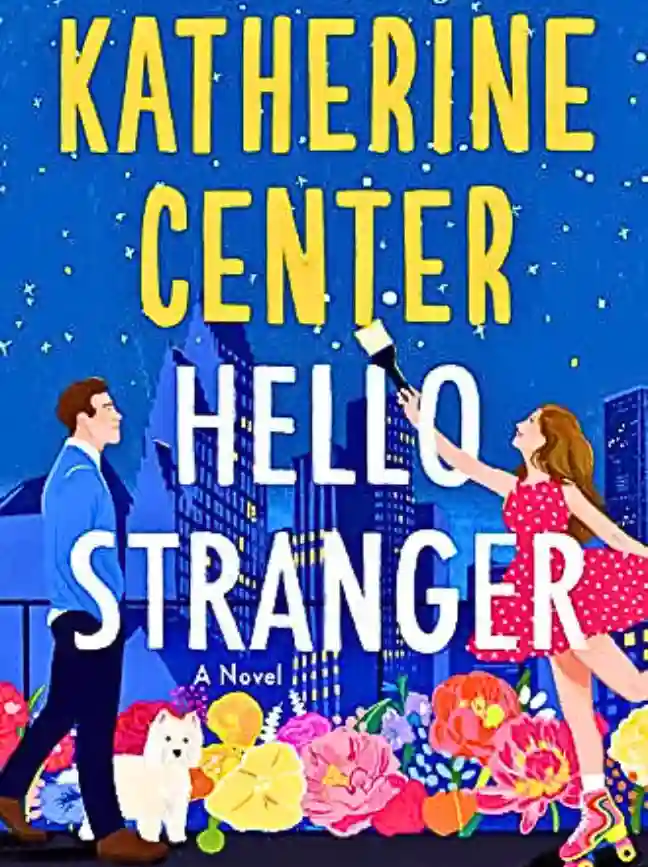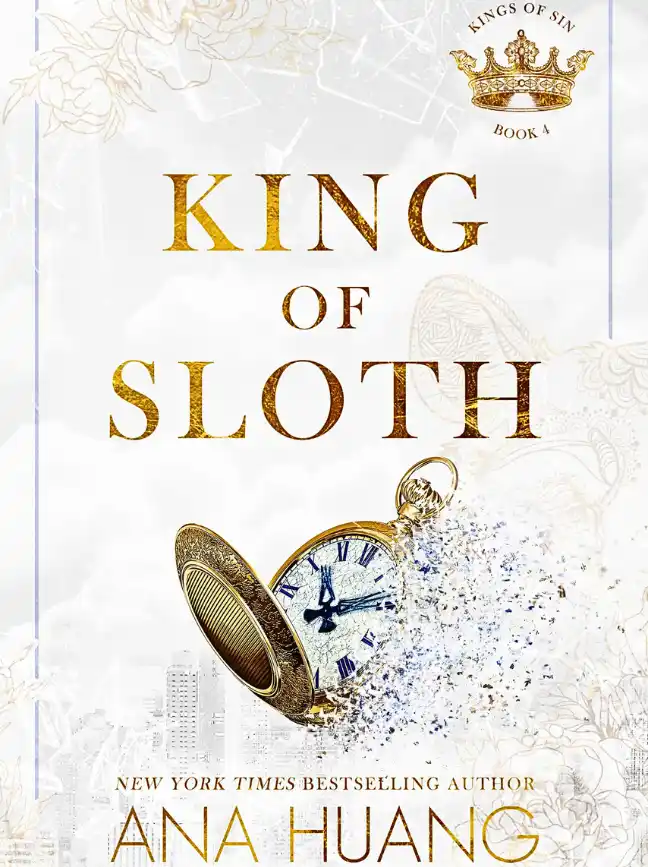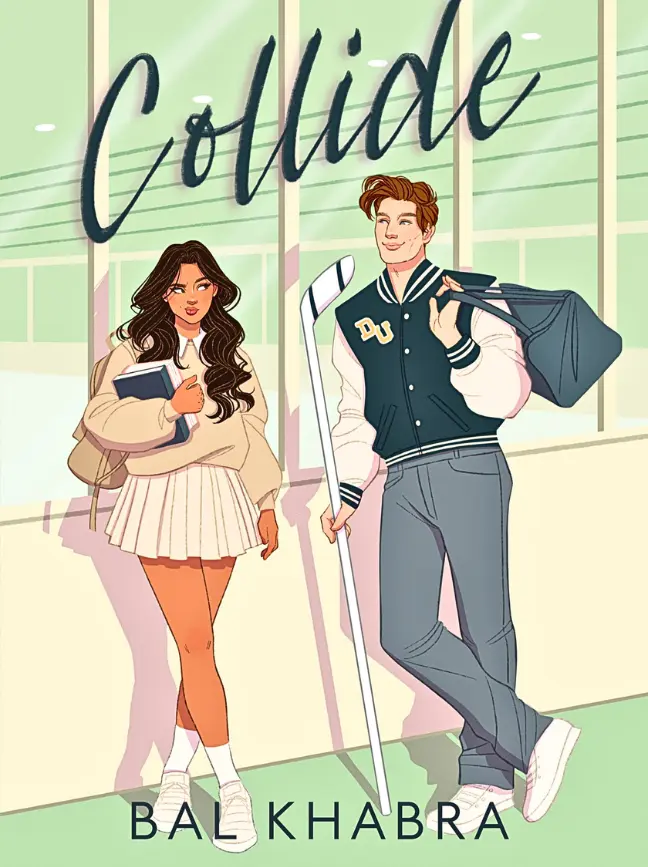The first week of July, Marx emailed Sam to say he was returning from the internship early: Dungeon Master Masur, Coming back from London this Saturday. The internship was a bust—will explain later. I’d like to crash on the couch, if it’s copacetic with you and Miss Green. I can also run any errands you guys need and generally smooth the way in my role as “producer,” ha ha. Dad was quite impressed with the two of you. Can’t wait to see how the game is going. Does it have a title yet? Marx, Level 9 Paladin
When Sam reported to Sadie that Marx would be back on Saturday, she was not pleased. “Can’t you ask him not to come?” Sadie said.
“I can’t,” Sam said. “It’s his apartment.”
“I know,” Sadie said. “That’s why he’s getting a producer credit. If he stays with us, does that mean we don’t have to give him a credit anymore?”
“No,” Sam said.
“We’re finally getting into a good work rhythm,” Sadie said. “Marx is awesome,” Sam said. “He can help us if he’s here.”
“With what?” Sadie said. As far as Sadie knew, Marx was a good- looking rich kid with a wide range of interests and very few skills. At Crossroads, where she’d gone to high school, half of her male classmates had been Marxes.
“With everything that we’re not doing. You’ll see,” Sam said. “He’s a resource, if we choose to employ him that way.”
As the matter had already been decided, Sadie went back to work.
They had made a great deal of progress on the design of their still nameless child. Sam had come up with the child’s wardrobe: the father’s sports jersey worn long, like a dress; the wooden flip-flops. They had
settled on the slick bowl haircut, which they both liked aesthetically and practically. A helmet-like hairstyle would have the cleanest look when layered into the complicated Hokusai-inspired backgrounds.
With the child’s design squared away, Sadie was perfecting the child’s movements. She wanted the walk to feel buoyant and slightly out of control, like a baby duck trailing after its mother. In the design document that she and Sam had written: “The child’s body moves the way a body can move before it has felt or even encountered the idea of pain.” Oh, the ambitions of design documents!
Sadie devoted several days to the problem of the child’s walk. She gave the character a tiny stride length, with fast steps that would leave bird-like, fading footprints. This was better, but what finally cracked it for her was to make the child not just move linearly, but to always have a few awkward accelerating steps to the side even when the player was piloting the character forward.
She showed her work to Sam. “It’s good,” Sam said. He moved the child around the screen. “But that’s me,” he said. “That’s how I walk.”
“No, it isn’t,” Sadie said.
“I’m a lot slower. But when I want to go forward, I end up going to the side,” Sam said. “At my high school, this one asshole used to call it the Sam shuffle.”
“I hate kids,” Sadie said. “I’m never having them.” Sadie took the keyboard back from Sam. She moved their child around the screen. “Okay, it might be a little bit you,” Sadie conceded. “But I honestly wasn’t thinking of you when I was doing it.”
Suddenly, Sadie became aware of the sound of explosions. “What’s that?” She crouched down, and Sam went to the window. Distantly, they could see fireworks. They had both forgotten it was the Fourth of July.
When Marx arrived in town, they showed him a demo of the first level. “This isn’t at all finished,” Sadie said. “There’s no lighting or sound, but it’ll give you a sense of the look we’re going for, and what the basic gameplay will feel like. I haven’t started making the storm yet either.”
Sam handed Marx the controller. The screen showed the child in the middle of the water, debris floating around them. Marx was an experienced gamer, but it took him a bit to get the hang of it, and the child perished several times under his command. “Jesus, this is hard,” Marx said.
The challenge of Ichigo’s first level was to make your way to shore without drowning while managing to grab your bucket and shovel. It was part rhythm game—you must figure out the controls that make the child swim—part action-adventure. The world was completely immersive: there were few clues, and no text. Eventually, Marx made it to the beach. When he saw the child walk, he exclaimed, delighted, “It’s Little Sam!”
“Please don’t call them that,” Sadie begged. “I told you so,” Sam said to Sadie.
Marx manipulated the character around the beach. “There’s no level two yet,” Sadie warned.
“No, I just wanted to see what Little Sam looked like from behind.” “Please stop calling them that,” Sadie said.
“What’s the fourteen on the back of Little Sam’s jersey mean?” Marx asked.
“Nothing,” Sam said. “The number of the kid’s father’s favorite sports star or something. We haven’t decided yet.”
“Juu-yon,” Marx said.
“What’s Juu-yon?” Sam asked.
“It’s fourteen in Japanese,” Marx said. “You said the kid doesn’t have a name, right? Maybe someone calls him Juu-yon for the number on the back of the jersey.”
“Interesting,” Sam said.
“They’re not a he, and I don’t like the Jew part,” Sadie said. “For obvious reasons, that will sound weird to American audiences.”
“How about Ichi Yon. That means one, four. Maybe the kid can’t count above ten, so they don’t know the word for fourteen yet,” Marx said.
Sadie nodded. “I almost like that. But it’s maybe not dynamic enough.” “You know what might be better than one, four? How about one, five? Ichi, Go. The kid’s name is Ichigo,” Marx said. “You could call the game
that, too. Ichigo also means strawberry.”
“Ichigo,” Sam tried out the word. “Go is dynamic. Go, go, Ichigo, go.” “Reminds me of the theme from Speed Racer,” Sadie said dismissively. “Right. That’s a good thing,” Sam said.
“It’s totally up to you guys, obviously,” Marx said. “I’m not the designer.”
Sadie thought about it. She didn’t love that Marx, whom she already resented, had just named their game. “Ichigo,” she said slowly. Dammit, she thought, it’s fun to say. “I can live with that.”
Though it took Sadie years to admit this to Sam, Marx did prove incredibly useful that summer. No, Marx wasn’t a game designer. He wasn’t an ace programmer, like Sadie, and he couldn’t draw, like Sam. But he did almost everything else for them, and his contributions ranged from the pedestrian, but necessary, to the creatively essential. Marx organized workflow, so Sadie and Sam were more aware of what the other was doing and what they needed to be doing. He made long lists of supplies they would need. He was more than liberal with his credit card—they always needed more memory and storage, and they were regularly burning out graphics cards—and he must have made fifty trips to the large computer store in Central Square that summer. He opened a bank account, and an LLC, Go, Ichigo, Go. He arranged for them to pay taxes (which saved them money in the short term by making their business purchases tax-free), and if, at some point, they needed to hire people, which he knew they would, he set them up for that, too. He made sure everyone ate, hydrated, and slept (at least a little), and he kept their workspaces clean and free of chaos. He was an experienced gamer, and as such, made an excellent level tester and bug spotter. Beyond all that, Marx also had taste and a sense of story. It was Marx who suggested the famous “underworld” sequence in Ichigo (“Ichigo needs to be as low as possible,” he said), and it was Marx who turned them on to Takashi Murakami and Tsuguharu Foujita. It was Marx, with his love of avant-garde instrumental music, who played Brian Eno, John Cage, Terry Riley, Miles Davis, and Philip Glass on his CD player while Sadie and Sam worked. It was Marx who suggested they reread The Odyssey and The Call
of the Wild and Call It Courage. He also had them read the story structure book The Hero’s Journey, and a book about children and verbal development, The Language Instinct. He wanted the pre-verbal Ichigo to feel authentic, to have details that came from life. Marx saw Ichigo as a homecoming story, but also a language story. How do we communicate in a world when we don’t have language? This story compelled Marx, in part, because his mother had never fully spoken Japanese, and he believed that was why she had spent most of her adult life lonely and sometimes depressed. It was Marx who began to understand the game on a sales level, too. It is one thing to have made a great game, but there will inevitably come a time when someone needs to be able to articulate to other people why it’s a great game.
By the middle of August, Sadie and Sam had rough versions of six of Ichigo’s eventual fifteen levels, and this was, in large part, a result of Marx’s organization. In a way, Marx found producing for Sadie and Sam to be not entirely different from just being Sam’s roommate. Without calling a great deal of attention to himself, he made things easy for them. He fought fires. He anticipated needs and obstacles before they arose. That is what a producer does, and Marx would turn out to be a very fine producer.
But the best thing Marx did for them was this: He believed in them. He loved Ichigo. He loved Sam. He was growing to love Sadie, too.
“So, what’s the deal with you and Sadie?” Marx asked Sam on a sweltering night in early August. The air-conditioning had gone out in the apartment, which was already hot from the computer equipment they were running. To try to keep cool, Marx and Sam were wearing nothing but their boxer shorts and pressing cold bottles to their foreheads. It was rare that the three of them weren’t together, but on this night, Sadie had left the house to meet with a friend from high school who was in town and, possibly, to escape the heat of the computers for a while.
“She’s my best friend,” Sam said.
“Sure,” Marx said, “I get that. But is it, you know—I hope this isn’t weird that I’m asking this—is it romantic? Or has it ever been romantic?”
“No,” Sam said. “We’ve never…It’s more than romantic. It’s better than romance. It’s friendship.” Sam laughed. “Who cares about romance anyway?”
“Some people do,” Marx said. “I guess I’m asking because…well, would you mind if I ever asked her out?”
Sam laughed again. “Ask Sadie Green out? Go for it. I doubt she would say yes.”
“Why?” Marx said.
“Because…” She hates you, Sam wanted to say. Because she thinks you’re an idiot and she resents that you’re even here. “Because she knows you date a lot,” Sam said.
“How?”
“I mean, it’s not exactly a state secret. You’re always with someone, and never for more than two weeks. Actually, now that I’m thinking about it, I don’t think it’s a good idea if you ask Sadie out. Not because I feel that way toward her, but because we’re all colleagues, aren’t we? I don’t want anything to get in Ichigo’s way.”
“No, you’re right,” Marx said. “Forget I mentioned it.”
The “two weeks” figure Sam had given was an exaggeration—Marx’s usual relationship lasted around six. Marx was great at being in love, for a bit, and certainly, no one ever left a relationship with Marx feeling abused or hurt. He had the gift of letting people think it was their idea to end the relationship, thereby converting most of his ex-lovers into friends. It was only weeks, months, sometimes years later that Marx’s ex would think, “Hmm, I think Marx may have broken up with me.” That said, Marx could not set foot in Harvard Square without running into an ex, and usually, that person was happy to see him.
If Marx at twenty-two had a problem, it was that he was attracted to too many things and people. Marx’s favorite adjective was “interesting.” The world seemed filled with interesting books to read, interesting plays and movies to see, interesting games to play, interesting food to taste, and interesting people to have sex with and sometimes even to fall in love with. To Marx, it seemed foolish not to love as many things as you could. In the
first months she knew him, Sadie disparaged Marx to Sam by calling him “the romantic dilettante.”
But for Marx, the world was like a breakfast at a five-star hotel in an Asian country—the abundance of it was almost overwhelming. Who wouldn’t want a pineapple smoothie, a roast pork bun, an omelet, pickled vegetables, sushi, and a green-tea-flavored croissant? They were all there for the taking and delicious, in their own way.
Among the many people who had dated Marx since he’d been at Harvard, it was said, sometimes bitterly, that the only real relationship Marx had was with Sam. Marx did love Sam, but he did not want to have sex with Sam. Sam felt like his baby brother. He would protect him to the death.
Sadie, however…Marx felt that she was another story. Sadie was like Sam, but she was not Sam, and this was deeply attractive to him. To Marx, there was something richer and more interesting and complicated about her than the people he typically dated. He was not foolish—he knew that she didn’t seem to like him—this was rare for Marx; everyone liked Marx!— but still, he wanted to know what it would be like if she did like him. He wanted her to talk to him the way she talked to Sam. Marx was a prodigious reader, and he felt like Sadie might be the kind of book that one could read many times, and always come away with something new. But Marx was attracted to so many people that when Sam told him not to pursue her, he didn’t take it especially hard.








